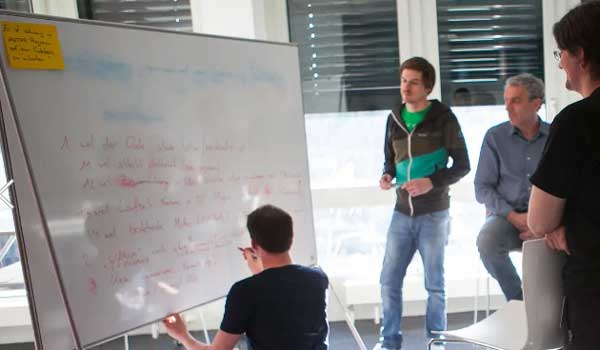In recent years, agile has taken the world of software development and project management by storm. The business world is changing rapidly, and that’s why businesses are looking for methods, approaches, and processes that could help them run a business without any glitches.
Traditional project management is an established methodology where projects are run in a sequential cycle: initiation, planning, execution, monitoring, and closure. The traditional project management approach emphasizes linear processes, documentation, upfront planning, and prioritization. As per the conventional method, time and budget are variable, and requirements are fixed, due to which it often faces budget and timeline issues. The standard methodology PMBOK® defines tools and techniques that project managers follow for every step. But the traditional method manifests its own benefits as well:
Traditional project management is an established methodology where projects are run in a sequential cycle: initiation, planning, execution, monitoring, and closure. The traditional project management approach emphasizes linear processes, documentation, upfront planning, and prioritization. As per the conventional method, time and budget are variable, and requirements are fixed, due to which it often faces budget and timeline issues. The standard methodology PMBOK® defines tools and techniques that project managers follow for every step. But the traditional method manifests its own benefits as well:
- Clearly defined objectives
- Ultimate control
- Clear documentation
- More accountability

While Agile is a general approach used for software development, it relies heavily on teamwork, collaboration, timeboxing tasks, and flexibility to respond to change as quickly as possible.
The agile method has four essential values:
There are many advantages of Agile methodology for project management. Agile methods can help teams manage work more efficiently and do the work more effectively while delivering the highest quality product within the constraints of the budget.
Flexible prioritization
Early and predictable delivery
Predictable costs and schedules
Improves quality
More transparency
Apacon prefers to use the agile methodology for a variety of reasons. Some of them are discussed below:
More flexibility
When it comes to making changes in the product or a process, the agile methodology is much more flexible than the traditional methodology. While working, if team members feel that there is a need to experiment and try something different than planned, the agile methodology easily allows them to do so. The best thing about this methodology is that it focuses more on the product than following a rigid structure. Unlike the traditional approach, agile methodology isn’t linear or follows a top-down approach. This way, all the last-minute changes can be accommodated without affecting the result and disrupting the project schedule.
More Transparency
In agile methodology, everything is out there and transparent. The clients and decision-makers are actively involved in the initiation, planning, review, and testing. Whereas in the traditional approach, the project manager holds the reins of the project, thus others don’t get to make the major decisions.
The agile methodology facilitates team members to view the progress right from the start to the end. This level of transparency plays a significant role to constitute a healthy work environment.
Ownership and accountability
One of the striking differences in both project management approaches is the level of ownership and accountability that each provides to team members. In traditional project management, a project manager is a person on the ship, which means that the entire ownership belongs to them. Customers are also involved during the planning phase, but their involvement ends there as soon as the execution starts.
In the agile methodology, every team member shares ownership of the project. Each one of them plays an active role to complete the sprint within the estimated time. Unlike traditional project management, everyone involved in the project can easily see the progress from the beginning to the end.
In reality, there is no ‘one-size-fits-all’ methodology suitable for every project or organization. The choice to implement a method primarily depends on factors such as the nature of the project, size, and resources involved, among others.
Most of the time, intelligent project managers decide which methodology to adopt during the beginning or initiation of the project.
He takes the final call in agreement with other project sponsors and people involved in the project planning process. Mentioned below are some factors you can take into consideration while choosing a suitable methodology for your project.













